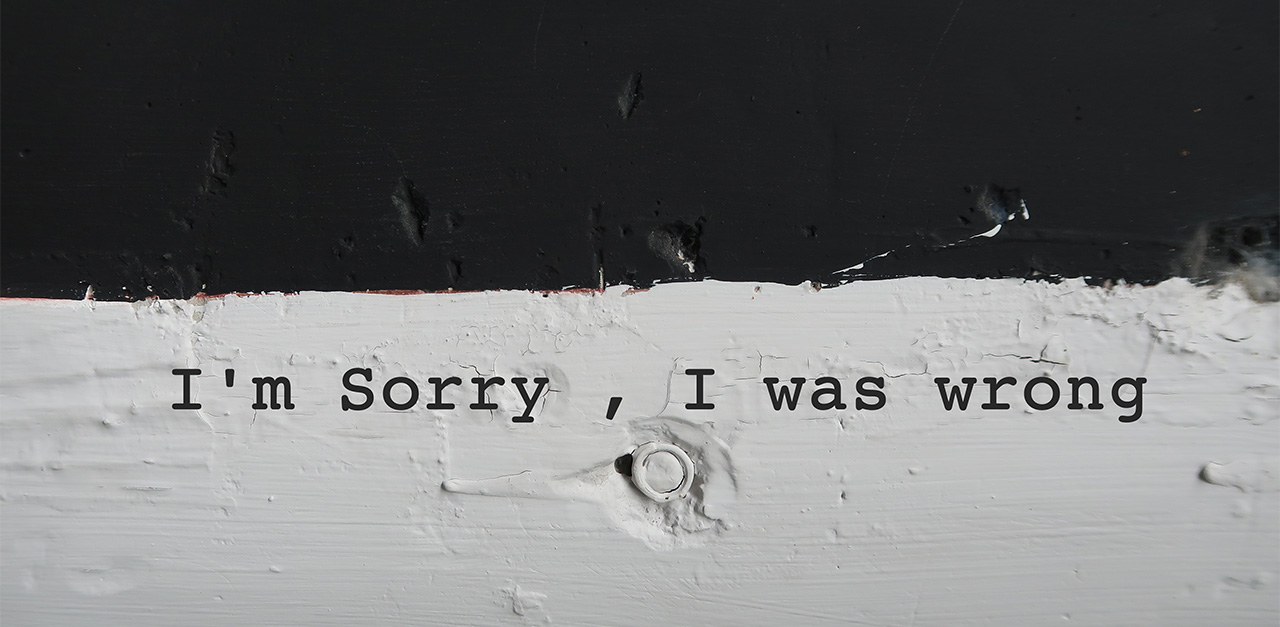I cherish the times when I have received a note or call of genuine apology. It heals the things that hurt. But often, true apologies are far and few between.
A decade ago, I facilitated a five-day leadership academy for 40 vice presidents of a healthcare company. They were highly educated, bright and successful. They were also resistant, stubborn and dug-in. They viewed the sessions as an interruption into their very busy work lives. They didn’t think they had anything to learn. And they took their frustrations out on me. I was dismissed and personally attacked. Needless to say, it was a terrible week in my career.
Several years later, I received a call from one of the attendees of this academy. He said he had thought about me many times over the years and wanted to personally apologize for how badly I was treated. He was ashamed that he’d participated in the gang-like behavior that unfolded.
Moved to tears by his courage, I set out to understand the art of the apology — the ultimate tool for accountability.
Intent, Impact and Accountability
As Mia Mingus has noted, “Apologizing well is a fundamental part of accountability. It is a skill that we should all understand and practice consistently. You cannot take accountability if you do not know how to apologize well.”
First, it’s important to recognize the difference between intent and impact. When something you’ve done hurts another person, it doesn’t necessarily mean that you meant to cause harm. Most people don’t set out to mess up other peoples’ days or lives. Your intent is likely good.
Your impact may differ from your intent. I’m learning about how to apologize for impact through a five-session training series called Whiteness at Work that my team and I are engaged in. Thought this course, we are learning how to dismantle racism in our organization with the tools we’re being trained in.
Our latest module focused on how to apologize when you mess up, say the wrong thing or cause harm, whether it was intentional or not.
Why is that distinction important? Because if you focus on your intent, you are focusing on yourself — what you meant to do or didn’t mean to do, why you said or did what you did. You become defensive. Your response might sound something like:
That wasn’t my intention.
I’m sorry I hurt your feelings.
I’m sorry if I offended you. I certainly didn’t mean to!
I was only joking. Don’t take everything so seriously.
The problem here is, no attention is given to the person you harmed. When people focus only on their intent when they receive feedback, they’ll typically explain themselves rather than giving an authentic apology. They may go on and on about what a terrible person they are or even burst into tears, but all of these things bring the focus back to them again. People end up feeling sorry for them. That’s not what a clean apology is about.
On the other hand, if you focus on your impact, the emphasis shifts to the person you harmed with your unintentional words or behavior.
To offer a clean apology you must put yourself in the other person’s world and acknowledge their experience. In other words, really look and see what you’ve done to them. This isn’t easy. You may want to squirm away from the discomfort of it. You may want to wriggle and explain that you really are good person, and you certainly didn’t mean to do that. But remember: Trust is increased with vulnerability, with telling the truth.
A clean apology can sound like:
I can see that my self-righteousness caused you to shut down. I’m sorry I did that.
I can see why you wouldn’t trust me because I shared what you had confided in me with others.
I made a mistake. It was my fault you got hurt.
Offering an apology is brave and necessary. True accountability can push us to grow and change, to transform. The gift that comes with accountability and apology is more trusting relationships.
You will mess up. Keep cultivating relationships you care about by offering a true apology when you mess up. Practice being accountable. Your life will only get better and better.


